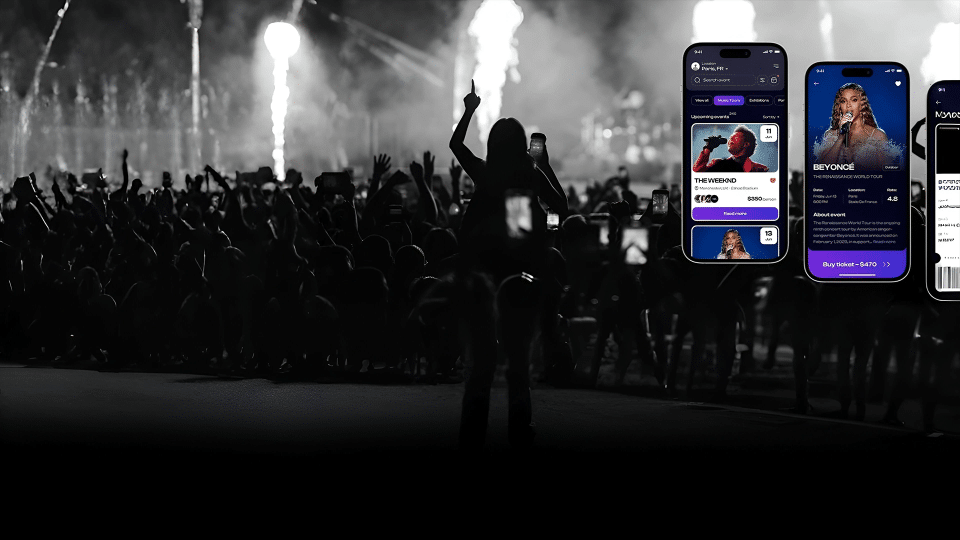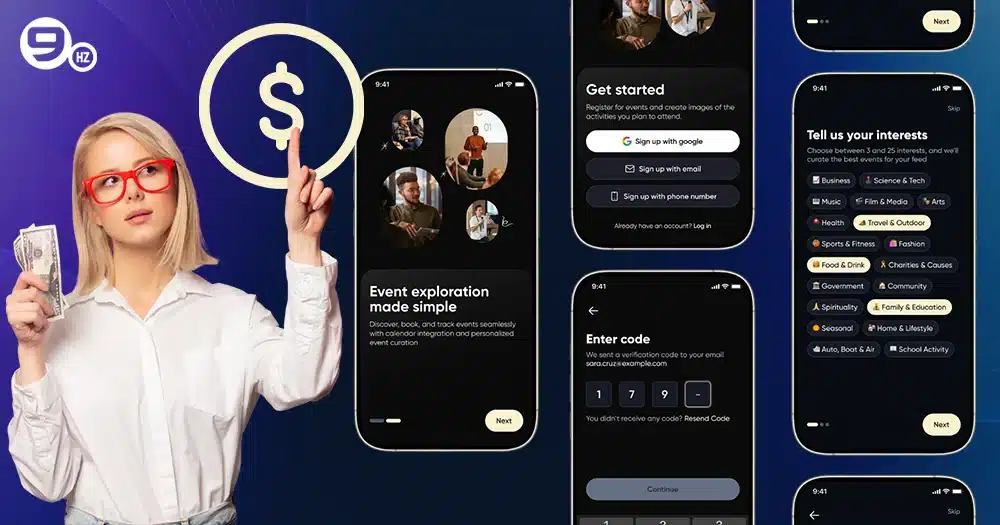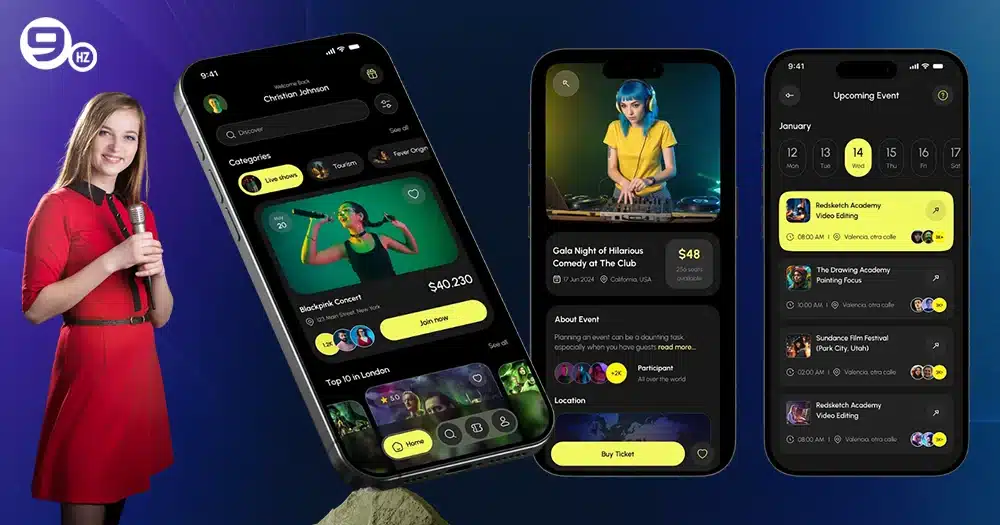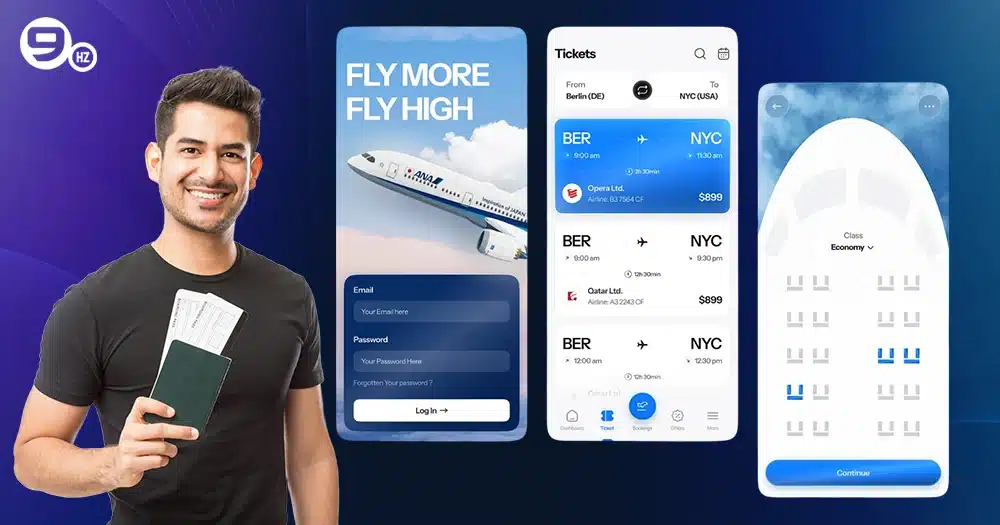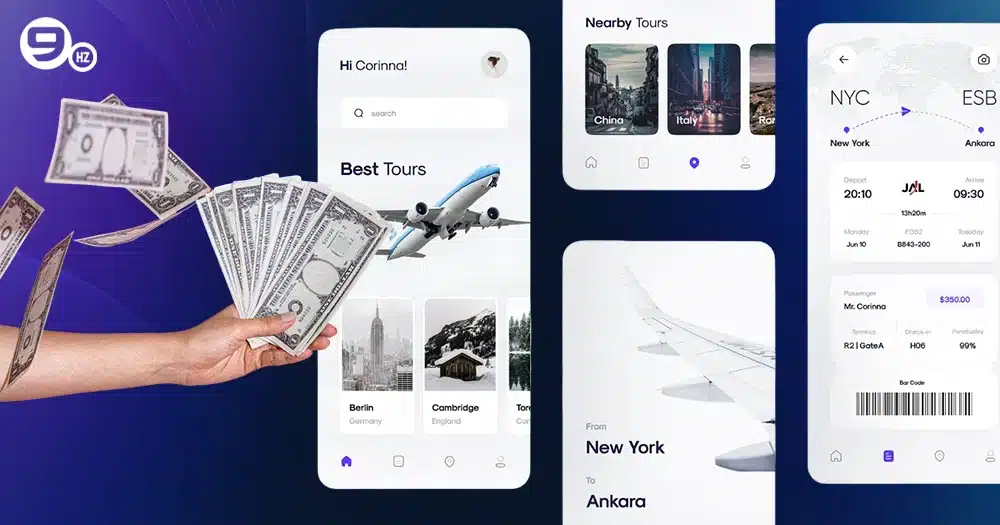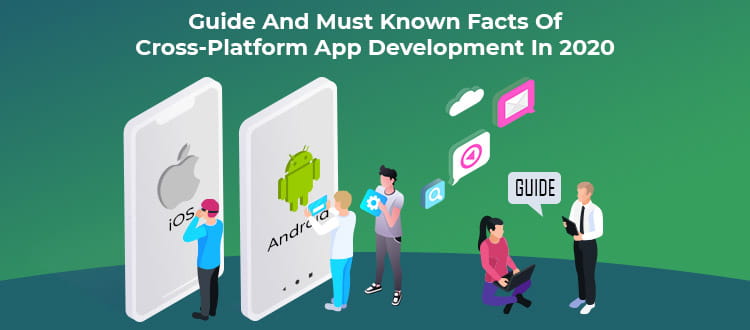In an era defined by smartphones, event ticket booking apps present an unprecedented opportunity to take the stress out of planning an event. By 2025, the global market for online event ticketing is expected to exceed $85 billion driven by the increasing consumer demand for personalization, convenience, and instant booking.
Whether you are running a show or attending one, an event ticket booking app can handle bookings, manage schedules, track guest lists, share event details in real-time, and facilitate seamless communication. This helps organizers plan their events smoothly and enhances the overall experience for attendees.
Mobile utilization is at its peak as 5.2 billion people across the globe use smartphones for their daily needs – from shopping to buying groceries to booking tickets online and more! If you own an event organizing business, consider developing a smart event ticket booking app to cater to every smartphone user’s demand for convenience and flexibility.
The cost to create a basic event ticket booking app generally ranges between $10,000 and $35,000. However, there are multiple factors that determine the final development cost. These factors include the platform you choose (iOS, Android or both), the existing and new features, the amount of customization required, and the region where your event management app development company is located.
Event Management App Development Market
The online event ticketing market is at an inflection point. This sector, already valued at $56.36 billion in 2021, is expected to hit $74.67 billion by 2027, at a CAGR of 4.8%. As smartphone users are prioritizing online booking, this number is expected to hit $89.59 billion by 2032, according to Maximize Market Research.
As smartphones have become a core element of our everyday lives, attendees expect to easily discover, book, and attend events. By 2026, the event app market will not only grow but will also evolve into an ecosystem that is technology-driven, including AI, blockchain, and data analytics.
Global Shift Toward Mobile-First Event Management
Forecasts indicate that by the end of 2026, more than 70% of all tickets purchased across the globe will be done so through a mobile device.
This shift is being driven by:
- a rise in hybrid and virtual events that require integrated ticketing solutions
- consumer preference for expediency and fast, intuitive interfaces
- personalized recommendations that will recommend events that attendees are almost guaranteed to go to.
Market Size & Growth Forecast
The global event ticketing market was valued at approximately $78.6 billion in 2023 and is expected to exceed $127 billion by 2030, with a CAGR of 6.2%. The primary growth driver is mobile ticketing, with the adoption rate steadily increasing year-over-year.
Category Breakdown:
- Concerts & Live Shows: The largest share of revenue, on a recurrent basis.
- Sports Events: Large volume, loyal following, and recurring bookings.
- Business Conferences & Trade Shows: Quickly adopting mobile ticketing to track attendees and generate leads.
Technology Shaping the Market
- Artificial Intelligence (AI): First identifies sweet-spot pricing, provides personalized event suggestions, and narrowcast marketing.
- Blockchain Technology: Validates authenticity, prevents duplication, and reduces fraud.
- Augmented & Virtual Reality (AR/VR): Provides immersive previews of venues and experiences at the event.
- Contactless Payments: Accepts Apple Pay, Google Pay and other cryptocurrency transactions.
- Cloud-based infrastructure: Handles the surge in transactions when demand spikes.
Competitive Landscape
Major players in event ticketing include Eventbrite, Ticketmaster, Cvent, BookMyShow and Universe, but there will always be space for niche/mobile apps that service particular event sectors, have additional unique features, or address underserved territories.
Opportunities in 2026
- Building niche-specific apps, such as for just music festivals or elite sports events.
- Providing multi-language and multi-currency support for global reach.
- Introducing eco-friendly ticketing with digital passes and carbon tracking.
- Making artificial intelligence-based personalization to lift engagement rates.
- Intense competition from established brands.
Hybrid & Virtual Events: A Game Changer
The rise of hybrid events has significantly expanded the ticket booking market. Organizers can now sell tickets for both in-person and virtual attendees, boosting reach by up to 30%. Many event apps integrate with platforms like Zoom, Vimeo, and Hopin to streamline attendee experiences.
Challenges to Address
- Ticket fraud and scalping require the payment provider to know how to protect against fraud.
- Low user retention on one-time use of any app, and event ticketing apps are often only used for one time.
- Regulatory compliance with GDPR, CCPA and other data laws.
Why Invest in This Market Now?
The numbers speak for themselves; event ticket booking apps can:
- Reduce costs for the organizers by about 30% in operating costs.
- Increase ticket sales conversion by almost 20-25% relative to traditional ways of booking tickets.
- Allow for direct marketing with push notifications and in-app promotions, ultimately answering ads that worked better than anything they did outside the app.
Technology continues to push boundaries of innovation, and the demand is at an all-time high, so 2026 is among the best and biggest potential years for building and scaling an event ticket booking app.
Why Your Event Management Business Needs an App?
With a highly competitive events industry now more than ever, having a mobile app is not just a nice-to-have; it is a necessity for survival and growth. The behaviour of the individual has dramatically changed, which is why the best event organizers are proactive about providing their audience instant access to event information, booking, and live updates of their event experience. More than 70% of event attendees in 2025, according to Statista, will prefer purchasing tickets through a mobile app versus a desktop website or other offline method.
This presents event organizers with an opportunity to not only increase ticket sales but also build a richer experience for attendees. An event management and ticket booking app provides event organizers with the ultimate one-stop shop for everything from discovering and booking the event to checking in and engaging with attendees after the event.
1. 24/7 Ticket Sales and Global Audience
An app removes obstacles such as time zone and office hours. Anyone, anywhere, can discover and book your events at any time, meaning:
- No physical counter or reliance on office hours.
- Instant payment and confirmation emails/QR codes drastically reduce drop-offs.
- It is possible to cater to international audiences and create more streams of revenue.
For example, a music festival in Germany could easily sell tickets to fans in New York, Sydney, or India through its app, without relying on third-party platforms that charge heavy commissions.
2. Efficient Operations for Organizers
As an event organizer, you have several responsibilities to handle, including venue bookings, ticket sales, marketing, customer service, and staff coordination. Having an app can centralise much of this onto one platform, providing you with:
- Real-time sales and analytics tracking.
- Automated reporting will minimize manual tasks.
- Marketing analytics through various platforms (push notifications, email campaigns, in-app banners).
- Payment gateways with secure multi-currency payment options.
Not only does this save time over doing things manually, but it also reduces your operational costs because you will use less paper for tickets, minimal manual entry, and a reduction in fees from using third parties.
3. Assured customer experience
A modern audience expects much more than simply purchasing a ticket; they want a journey. An app can provide:
- Curated events based on previous browsing and ticket purchase history.
- Interactive seating maps to select the best venue location.
- AR bookings to enhance the whole book experience.
- In-app customer service to resolve problems lying in wait.
The easier and more engaging the book experience is, the higher your conversion and retention rates will be.
4. Direct Communication with Attendees
The beauty of a mobile app is that you own the communication channel with your audience, you have no third party or any algorithms in the way. You can use push notifications to:
- Tell them about new events or about an early-bird offer.
- Remind them about upcoming shows.
- Inform them of any last-minute changes about a show.
This direct link helps to build trust, engage audience members, and ultimately create repeat business.
5. Data You Can Use to Make Better Decisions
Data is one of the most valuable aspects of any business. A ticket booking app will track things like:
- Which events are trending up?
- When your peak booking hours are?
- What payment methods does your audience prefer?
- Who is buying your ticket based on demographic information?
You can use this data to adjust markup prices, alter marketing campaigns, and even tweak event times, which will maximize your ROI.
6. Stand Out in a Crowded Space
In 2026, the event management space is more crowded than ever before. One of the dangers of not having an app is that you can lose a potential customer who is booking tickets from a competitor who has a better digital experience. A good and well-conceived booking app with contemporary features will stand out by:
- Showing how forward-thinking your brand is and that you care about your customers.
- Providing app-only benefits (loyalty rewards, ticket access, etc).
- Helping to cultivate a loyal community around your events.
7. Expansibility for Future Development
An app is a relatively easy aspect of your business to scale up as it grows- be it following your expansion to new cities, adding event types, or riding the wave of developing technologies (for example, blockchain ticketing). Features and integrations can be added over time, while your initial value proposition remains unchanged.
Case Study: A Ticket Sales Increase of 40% via the use of an App
In early 2024, a mid-sized event organizer in Europe launched its own ticket booking app. Over the following six months, it was able to report:
- Ticket sales were 40% up on the previous year.
- Due to self-service features, it reported a 25% dip in support requests; and
- 30% of all ticket sales came via push notification, including a large portion of last-minute sales.
The above shows the demonstrated impact a dedicated app can have on overall revenue and operational efficiencies.
To sum it up, an event management app is not just a sales engine; it is a complete ecosystem to create and grow relationships, maximise revenue, and ensure you are future-proof in an industry where digital-first experiences are the norm. In the next section, we will outline the key considerations for estimating the costs of building an event booking app and the investment required to bring your concept to life as a functioning application.
Factors That Affect the Cost of Event Ticket Booking App Development
When you are preparing to turn your ticket booking app development idea into reality, one of the first questions that will come to your mind for estimates on developing a mobile app is, How much will this cost?
The reality is, there is no one price that is fixed. The range can be $20,000 for a basic MVP to more than $200,000 for a fully functional platform app across iOS and Android with much functionality.
The total investment will depend on multiple factors, from the product functionality to the development partner you choose to work with. And the good news is, if you understand the factors that affect the cost, you can build a more realistic budget and will be able to have a better understanding of all hidden costs.
1. Platform (iOS, Android or Cross-platform)
The platform, iOS vs. Android vs. Cross-platform, has a significant impact on cost:
- iOS-only app: Usually has a lower initial development cost, but you are limited to your audience on the spend to users of Apple devices.
- Android-only app: Android apps have a wider audience around the world, but the diversity in devices means you can spend additional time and costs in testing.
- Cross-platform (React Native, Flutter): if you build a cross-platform app, you can use ‘one codebase’ to deliver to iOS and Android, thus reducing the cost by 25-40% when compared to iOS and Android apps.
For example, a basic cross-platform MVP might cost between $30,000 – $50,000, whereas two native apps might cost over $60,000.
2. App Complexity and Features
The more complex your app, the higher the cost.
| Complexity Level | Features Included | Estimated Cost (USD) |
|---|---|---|
| Basic | Event listings, ticket booking, payment gateway, and QR code ticket. | $20,000-$40,000 |
| Medium | All basic features + user profiles, seating selection, push notifications, analytics dashboard. | $40,000-$80,000 |
| Advanced | All medium features + AI recommendations, AR/VR previews, blockchain ticketing, multi-language, live streaming. | $80,000-$200,000+ |
Pro Tip: Start with a Minimum Viable Product (MVP) to test the market, then add advanced features later.
3. Design & UI/UX Customizations
A professionally done UI/UX through design is a major way to increase users and interaction, but there is a price.
- Template UI/UX: Provides functionality and is cheaper than a design, but not unique.
- Custom UI/UX: Allows for brand consistency and usability enhancement, but requires designers.
Plan on spending $5,000 and up to $20,000 on design, depending on complexity and animated design.
4. Development Team Location & Rates
The location of your development team can significantly influence costs.
| Region | Hourly Rate (USD) |
|---|---|
| North America | $80–$150/hr |
| Western Europe | $60–$120/hr |
| Eastern Europe | $30–$60/hr |
| India & South Asia | $20–$50/hr |
| Southeast Asia | $25–$55/hr |
5. Third-party integrations
Chances are, your app is going to need integrations with:
- Payment processors (Stripe, PayPal, Razorpay) – $1,000-$5,000 – (depends on payment processor used)
- Live streaming (Zoom, Vimeo) – $2,000-$8,000
- Maps and location services – $500-$3,000
- Marketing tools (email automation, analytics) – $1,000-$4,000
Integrations are not without cost, but they are worth it in terms of the user experience, usability experience, and integration flexibility.
6. Security features
Security matters in your ticket booking app. Security is important as there are interactions with payments and personal data.
- Symantic or SSL connection for embedding (secure connection).
- Two-factor authentication (2FA) to log into user accounts.
- Blockchain is used when selling tickets to review and confirm attendance and ticket usage.
Security can be $5,000 to $15,000 and will ultimately save you. If you do not think security is important, you will pay dearly for a premature breach.
7. Backend Infrastructure and Scalability
The way your app has been developed for the backend will dictate how well it can handle the potential traffic as we launch its most popular events.
- Cloud (Amazon Web Services (AWS), Google Cloud, Azure) – $20-$500 a month (depending on how well the menu is executed).
- Infrastructure that can be scaled if your app is successful early on may have a higher cost structure initially, but it potentially saves you money on redevelopment later down the road.
8. Post-Launch Costs (Maintenance & Updates)
Launching your app is just the first part of the project. You will have ongoing:
- Bug fixes & updates, and security patches – $1,000-$5,000 annually
- Feature updates, changes, & enhancements (to be very clear, user enhancements) – $5,000-$20,000 annually
- Server & hosting costs – $500 – $2,000 annually
On average, annual maintenance costs are around 15 – 20% percent of the original app development cost.
9. Marketing & App Store Costs
Despite your best efforts, even a great app will fail without marketing.
- App Store fees: Apple $99/year, and Google Play charges a one-time $25 fee.
- Online ads, influencer marketing, PR campaigns, etc – $5,000 – $50,000 depending on your budget and approach.
10. Legal Compliance
You may also have to comply with various regulations relating to your app:
- Data privacy (GDPR, CCPA, etc.)
- Payment regulations (PCI DSS)
- Inclusivity standards.
Deciding not to comply is a risky decision that can get you fined or removed from the App Store and Google Play Store. It is always a good decision to invest money in being legally compliant.
Hidden Costs Catch You Off Guard
There are a variety of things that can go wrong (from a cost perspective) that many businesses miss.
- Working with beta testers in the wild – $1,000-$3,000.
- Developing and maintaining a customer support option – $2,000-10,000.
- API charges or added costs for using third-party content, data, etc, such as maps or ticket validations.
Cost-Saving Ideas:
- Start with an MVP and continue to add other features based on your customer feedback.
- Hire wisely – Make sure to use resources like hybrid teams (essentially using low-cost regions for core
- development, and using designers/strategies in a high-cost region, if relevant).
- Use open-source tools when you can, and try to steer clear of licensing tools.
- Always think about the scalability of your plan. You will often find cheaper versions of tools to use, but you will not find cheaper versions of code which need to be rewritten.
Thus, the cost of building an event ticket booking application is dependent on your idea, your selected features, plus the development route. Once you have created a good budget that factors in development as well as maintenance costs, you can rest assured that your app will deliver high ROI while avoiding hidden costs.
Types of Ticket Booking Apps
The space of ticket booking apps is vast and growing at a rapid pace. Your development approach will be determined by the type of app you decide to build. The market is filled with various kinds of ticket booking applications. Each one is tailored to cater to different audiences. These apps provide unique features and come with different development costs. It’s important to understand various types of ticket booking apps to align your app’s features and functionalities with the specific needs of your audience.
| Type | Audiance | Scalability | Cost-range |
|---|---|---|---|
| Event-Specific | Niche Fans | Low | $30k – $80k |
| Aggregator | General Public | High | $80k – $250k+ |
| Venue-Based | Local Audience | Medium | $40k – $100k |
| Category-Specific | Niche Enthusiasts | Medium | $35k – $90k |
| Hybrid | Broad + Niche | High | $100k – $200k+ |
| Corporate/B2B | Organizations | Medium | $50k – $120k |
| White-Label | Startups | Low | $10k – $40k |
Read Also: Social Media App Development Cost
How Much Does It Cost to Build an Event Management & Ticket Booking App?
The cost of building an event management and ticket booking app depends on multiple factors. These factors include number of features, technology stack, app complexity, hourly rate, location of the app development company, and more.
The cost remains moderately reasonable for developing an app with basic features like event listings, push notifications, and simple scheduling. For a basic functionality app, the development cost usually ranges between $20,000 and $50,000. If you want an advanced app that has AI-powered networking, live streaming, a robust analytics dashboard, or AI/VR features, the development cost could start from $75,000.
Here are some crucial factors that determine the overall cost of developing an event management app –
1. Development Cost by Complexity
a. Basic MVP (Minimum Viable Product)
- Best for: Businesses (startups) attempting to prove mission/product-market fit in the market.
- Main features: Simple event listings, ticketing, payment functionality, simple admin panel.
- Estimated development time: 2-4 months
- Estimates cost: $25,000 – $50,000
b. Mid-Level App
- Best for: Growing businesses considering competitive products.
- Main features: Advanced search, push notifications, interactive seat selection, in-app support, and multiple payment options
- Estimated development time: 4-6 months
- Estimates cost: $50,000 – $120,000
c. High Complexity App
- Best for: Enterprise, large platform, or aggregators.
- Main features: AI recommendations, AR/VR preview, loyalty program, multiple currencies & languages, dynamic
- pricing, event promotions, blockchain ticket validation.
- Estimated development time: 6-12 months.
- Estimates cost: $120,000 – $250,000+
2. Cost by Development Approach
| Development Approach | Pros | Cons | Cost Range |
|---|---|---|---|
| In-House Team | Full control, direct communication | High salaries & overhead costs | $100k – $250k+ |
| Outsourcing to an Agency | Skilled team, project management | Less direct oversight | $50k – $180k |
| Freelancers | Lowest initial cost | Quality & reliability risks | $25k – $80k |
| Hybrid (Mix) | Cost-efficient & flexible | Requires strong coordination | $40k – $150k |
Tip: Many startups choose outsourcing to agencies in cost-effective regions like Eastern Europe or India to save up to 50% without compromising quality.
3. Cost by Development Region
| Region | Hourly Rate ($) | MVP Cost Range | Full-Featured App Cost Range |
|---|---|---|---|
| USA / Canada | $80 – $150 | $50k – $100k | $150k – $250k+ |
| Western Europe | $60 – $120 | $40k – $90k | $120k – $200k+ |
| Eastern Europe | $40 – $80 | $30k – $70k | $80k – $150k |
| India | $25 – $50 | $25k – $50k | $70k – $120k |
| Southeast Asia | $20 – $40 | $20k – $40k | $60k – $100k |
4. Cost Breakdown by Development Stage
| Development Stage | Tasks Included | Estimated Cost Range |
|---|---|---|
| Discovery & Planning | Market research, competitor analysis, wireframes | $3,000 – $8,000 |
| UI/UX Design | User flow mapping, visual design, prototyping | $5,000 – $20,000 |
| Frontend Development | App screens, animations, and user interactions | $15,000 – $50,000 |
| Backend Development | Database setup, API integration, and admin panel | $10,000 – $40,000 |
| Third-Party Integrations | Payments, maps, analytics, social logins | $5,000 – $15,000 |
| Testing & QA | Manual & automated testing, bug fixes | $5,000 – $15,000 |
| Deployment | App Store & Google Play submission, hosting setup | $2,000 – $5,000 |
| Post-Launch Support | Updates, bug fixes, new features | $15,000 – $40,000/year |
5. Hidden Costs to Consider
Many businesses are not aware of the many ongoing and indirect costs that can stretch their budget over time.
- App Store & Play Store Fees: $99/year for Apple, and a one-time $25 fee for Google.
- Cloud Hosting & Storage Fees: $100 – $500/month based on traffic.
- Push Notification Services: $50 – $300/month based on volume of usage.
- Customer Support Tools: $50 – $200/month.
- Marketing Budget: $5,000 – $50,000+ for launch campaigns.
6. Tips to Save Money
- Commit to an MVP: build only core features first, build the “nice to haves” after.
- Cross-Platform Development: can save up to 40% with a cross-platform technology like Flutter or React Native.
- Look at Re-Brandable Solutions: if your goal is to get something to market quickly and at low cost, consider a re-brandable solution.
- Outsource Wisely: the best / most skilled developers may be cheaper in regions with lower overall cost (e.g. India, Eastern Europe).
Thus, the total cost to develop an event management & ticket booking app in 2026 will come down to the feature set, level of sophistication and your approach to development. A costly high-end app will cost tons of money, but options like MVPs and outsourcing development can allow users to launch apps without major investments.
Conclusion
As the year 2025 passes by, the demand for booking system development continues to grow. This growth in demand is driven by the global shift toward mobile-first experiences and the increasing expectation for seamless, real-time access to events. Whether it is for concerts, sports matches, corporate conferences, or community festivals, users want speed, convenience, and personalization, and a well-built app delivers all of that in one place.
In this blog, we have covered various aspects of event management application development, from understanding the market to identifying the factors affecting development cost, as well as how strategic decisions such as choosing the right tech stack, features, and platform can significantly impact your budget and time-to-market. We also explored several revenue models, such as commissions, service charges, ads, merchandise sales, and white-label licensing and found that if done in the right manner, a ticket booking app is not just a tool but a viable business as well.
However, success does not just depend on development—it is about continuous improvement, marketing, and delivering a flawless user experience. With technologies like AI-powered recommendations, AR seat previews, and blockchain-based ticket verification, the possibilities for innovation are endless.
If you are planning to launch your own event ticket booking app, the key is to start with a clear vision, an MVP approach, and partner with a trusted custom mobile app development company like The NineHertz, who understands the industry. Once done right, your app won’t just sell tickets; it will create a connected ecosystem for event discovery, engagement, and loyalty.
Frequently Asked Questions
Let us discuss some of the frequently asked questions related to the cost to build an event ticket booking app:
1. How much does it cost to build an event ticket booking app in 2026?
Depending on the platform (iOS, Android, or both), features, design complexity, integrations, and developer location, the cost to build an event ticket booking app can vary from $20,000 to $150,000 and above. Basic booking apps will be less expensive than advanced apps with AI, AR, and blockchain features.
2. How long does it take to develop a ticket booking app?
A ticket booking app that is scalable and has advanced features may take up to 6-12 months to develop, while a basic MVP with limited features can be completed in 3-5 months. Factors like design, integration, and testing requirements affect timelines.
3. What features are essential for an event ticket booking app?
Essential features for an event ticket booking app include event listings, advanced search filters, secure payment gateways, QR code ticketing, push notifications, seating selection, and user profiles. Advanced apps may also include AI recommendations, AR seat previews, and social sharing options.
4. How can I make money from a ticket booking app?
From an event ticket booking app, you can earn revenue through commissions on ticket sales, service fees, subscription plans, in-app advertising, merchandise sales, and affiliate partnerships. Combining multiple streams will increase profitability.
5. Is it better to build a native app or a cross-platform ticket booking app?
Native apps, which are developed independently for iOS & Android, offer the best performance and user experience, but are more expensive. On the other hand, cross-platform apps, which are built using Flutter or React Native, are more cost-effective and faster to develop, but may have slight performance limitations.
Great Together!
